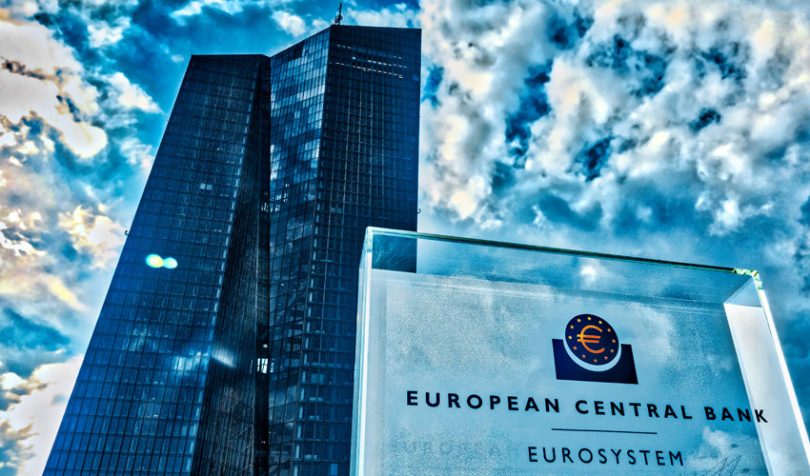Europe’s central bank is making its announcement and buying considerably more bonds on a weekly basis than before. What that means for investors – and why the markets reacted rather calmly on Monday.
The European Central Bank (ECB) has noticeably increased the pace of its bond purchases. In the past week, the net bond purchases rose from 14 to 21 billion euros, as the central bank announced. That was the highest value in three months and the second highest since the early weeks of the pandemic. The average was recently significantly lower. Since January it had previously been at 13.6 billion euros per week, as the economist Frederik Ducrozet from Bank Pictet pointed out.
Lagarde had announced at the press conference after the previous ECB Council meeting on March 11th that the central bank did not want to enlarge its huge crisis program of 1.85 trillion euros, but would use the flexibility more and increase the pace – so to speak, prefer purchases. In the next quarter, the bond purchases should turn out to be “significantly more extensive” than in the first few months of the year. The central bank reacted to the rise in yields on the bond market: If this were to significantly worsen financing conditions for companies, the idea is that it could make the economy more difficult to recover from the pandemic. “We will make the purchases flexibly in accordance with market conditions and with the aim of avoiding a premature tightening of financing conditions,” wrote Lagarde on Monday in a blog post.
In the week before last, when the press conference with the announcement took place, the bond purchases had increased only slightly from 12 to 14 billion euros compared to the previous week. So this week the increase was significantly higher. At the beginning of the crisis program last year, however, there were also higher weekly purchases – at that time the central bank wanted to react to the crisis as quickly as possible.
Market reaction rather subdued
The financial markets were rather relaxed on Monday. The rate of the euro rose slightly against the dollar, the German share index Dax remained slightly positive in the course of trading at 14657 points and bond yields moved only slightly. The move by the ECB was within market expectations, said David Zahn, head of European bonds at the fund company Franklin Templeton this increase is temporary. “
The increase in net purchases by around 50 percent compared to the previous week goes beyond a mere signal, said Holger Schmieding, chief economist at the Hamburg bank Berenberg: “The ECB is noticeably intervening in the market, and so far with the success it has achieved hoped. ”She followed her words with deeds. In the long run, however, the euro zone will not be able to decouple itself from the American-driven upward trend in global yields.

